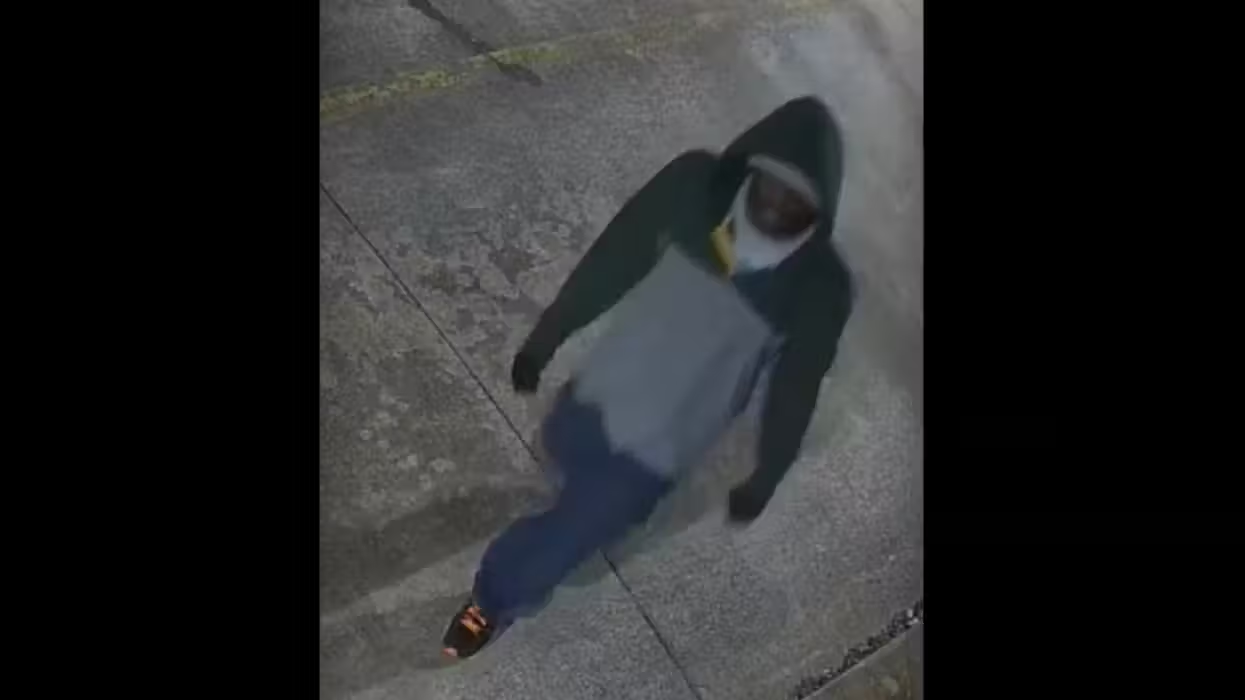
© 2026 Blaze Media LLC. All rights reserved.
Republicans Have an Immigration Plan, and It's a Little Different From Obama's
January 19, 2015
"We are putting fencing where fencing is needed..."
House Republicans have proposed legislation that would give the Department of Homeland Security two years to gain operational control of high-traffic areas of the border, and impose significant penalties against DHS if it fails to meet that goal, including an end to all bonuses and salary hikes.
The bill requires more infrastructure to secure the border, including new border fencing and the option of using Defense Department equipment to prevent illegal crossings. It also requires aerial surveillance, and more strict ways to measure the government's control of illegal entries.
The Secure Our Border First Act, from Homeland Security Committee Chairman Mike McCaul (R-Texas), may well serve as the Republican response to President Barack Obama's executive action on immigration. Democrats have demanded that Republicans take some sort of legislative action to deal with what everyone agrees is America's "broken immigration system," and Republicans have said for years that legislation should start with border enforcement.
"The Secure Our Borders First Act will be the most significant and toughest border security bill ever set before Congress," McCaul said. "We are putting fencing where fencing is needed and technology where technology is needed to ensure a smart, safe, and cost-effective border."
"We tell the government how to secure the border step-by-step, and put in place real penalties for ignoring the will of Congress," he added.
The bill would prevent DHS officials from receiving bonuses and pay increases if DHS fails to gain control of the border in the specified timeframe, refuses to adopt new metrics for measuring border security, or fails to implement a new biometric exit system for illegal immigrants.
Republicans have said control of the border is a necessary first step to immigration reform, and McCaul's legislation would give DHS five years to gain "operational control" of the entire border. That term is defined in current law as the "prevention of all unlawful entries into the United States, including entries by terrorists, other unlawful aliens, instruments of terrorism, narcotics and other contraband."
It calls for 27 miles of new border fence, and the construction of more access roads and boat ramps. It would also open up federal lands to border agents that are now closed to them.
Officials would have to step up their aerial surveillance of the border under McCaul's bill. U.S. Customs and Border Protection's Air and Marine division would have to fly aerial drones over the border for a least two-thirds of every day of the week.
Along those lines, it would give border agents access to some military equipment to enforce the border, and provides funding for National Guard assistance.
DHS would also have to create a new set of metrics for measuring the extent to which the border is secure. Among other things, it would require DHS to examine the probability that an illegal immigration would be detected, and the chances that drugs will be seized when moved across the border.
To ensure those metrics are not altered for political reasons, the bill would prevent any DHS political appointees or the White House from reviewing that data before it's released.
McCaul introduced his bill with 14 GOP cosponsors, including 11 from Texas and Arizona. The cosponsors are Reps. Rob Bishop (Utah), Larry Bucshon (Ind.), John Carter (Texas), John Culberson (Texas), Blake Farenthold (Texas), Bill Flores (Texas) Will Hurd (Texas), Martha McSally (Ariz.), Candice Miller (Mich.), Pete Olson (Texas), Ted Poe (Texas), John Ratcliffe (Texas), Pete Sessions (Texas) and Roger Williams (Texas).
Want to leave a tip?
We answer to you. Help keep our content free of advertisers and big tech censorship by leaving a tip today.
Want to join the conversation?
Already a subscriber?
more stories
Sign up for the Blaze newsletter
By signing up, you agree to our Privacy Policy and Terms of Use, and agree to receive content that may sometimes include advertisements. You may opt out at any time.
Related Content
© 2026 Blaze Media LLC. All rights reserved.
Get the stories that matter most delivered directly to your inbox.
By signing up, you agree to our Privacy Policy and Terms of Use, and agree to receive content that may sometimes include advertisements. You may opt out at any time.






